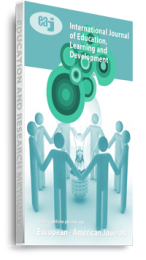This article focuses on the place of diversity and inclusion in secondary school educational practices in Rivers State, Nigeria. In the face of advancements in society, Nigeria, a member state of the United Nations at the recent world education forum, held at Incheon, Republic of Korea, adopted the “Education 2030” vision for education. It was translated to the Sustainable Development Goal four (SDG4) and captioned “Towards inclusive and equitable quality education and lifelong learning for all”. This calls for an inclusive education packaged for the benefit of all. Hence, there is need to ensure that education becomes free and a right of all Nigerian children, irrespective of distinct characteristics which set them apart from others of same age bracket, such as gender, socioeconomic status, religious affiliations among many. The major issue of diversity and inclusion is one of respect and appreciation of differences which call for the cooperation of all key players.
Keywords: Diversity, Inclusion, educational practices

